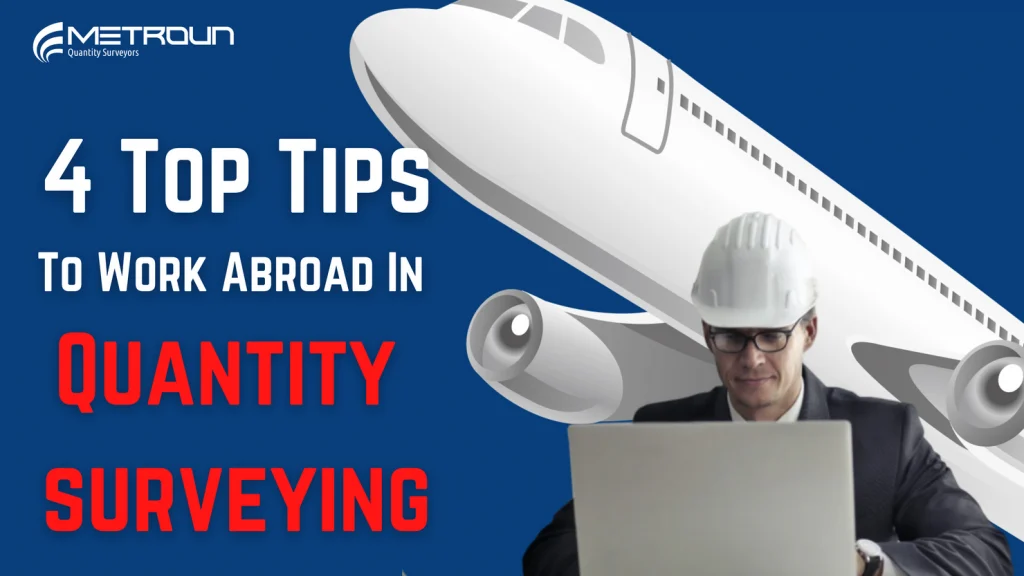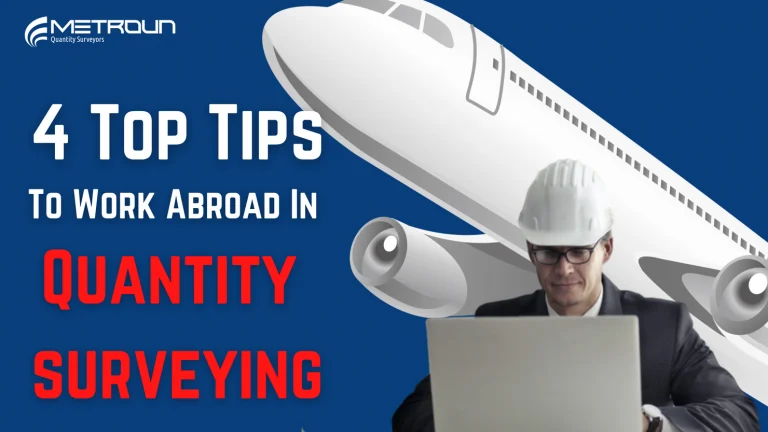In a recent poll, we asked you guys if it was your intention to work aboard at some point in your career. An overwhelming 94% you answered definitely or maybe. For that reason, we’ve created this article to give you some tips on what you should do if you want to work abroad.

Tip 1: Qualifications
It’s recommended you obtain a recognised degree. This is normally a Bachelor of Science in Quantity Surveying. However, other similar degrees like Commercial Management will suffice. Diplomas and post-graduate qualifications are also normally acceptable. We suggest you spend some time researching the qualification requirements for some job postings in your country of choice. It may be possible for you to find a placement aboard without a degree, under the agreement you will carry out your studies there part-time. However, at minimum, you’ll need to demonstrate your skills with some recognised further education qualifications. Potential employers are taking a calculated risk when employing from other nations. It’s in your best interest to make the decision to employ you as easy as possible.
Tip 2: Right to work
It goes without saying you’ll need to research the requirements for working in the selected country. Lucky for us Quantity Surveyors, there isn’t a massive skill surplus, with some countries even suffering from a scarce talent pool. This goes in our favour when applying to work abroad. Some countries may even enable easier routes to entry due to the increased skill demand. For example, at the time of making this video, in New Zealand Quantity Surveyor is currently under the “Long Term Skill Shortage List”. This means that provided you meet the other standard criteria, you can apply for a Long Term Skill Shortage List Work Visa. This creates and more smooth pathway for New Zealand residence.
We advise you check out the official government immigration website for the country you wish to resettle in.
Tip 3: Communication
We suggest you spend some time contacting agencies in the desired country. They receive commission for finding you placements so it’s in their best interest to act as a helpful intermediary between yourself and potential employers. Not only will they be able to advise you, but they may also be able to help you find placements that best suit your personal situation. For example, some companies may offer travel, sponsorship and/or temporary/ permanent accommodation during the term of your placement. Some may even offer an initial lump sum to get you started. However, without making the initial contact, you may not know the opportunities available to you.
Tip 4: Research
You need to research the area you are potentially working in. Find out what the cost of living is, the accommodation available and the practicalities for commuting to work. You’ll also want to know if the areas suits your taste. Do you prefer city, urban or rural locations? Busy or quite neighbourhoods? The last thing you need when migrating is any nasty surprises along the way. For that reason you need to carry out extensive research to ensure you’re well prepared for what’s ahead.
Why not check out our video on this subject:






